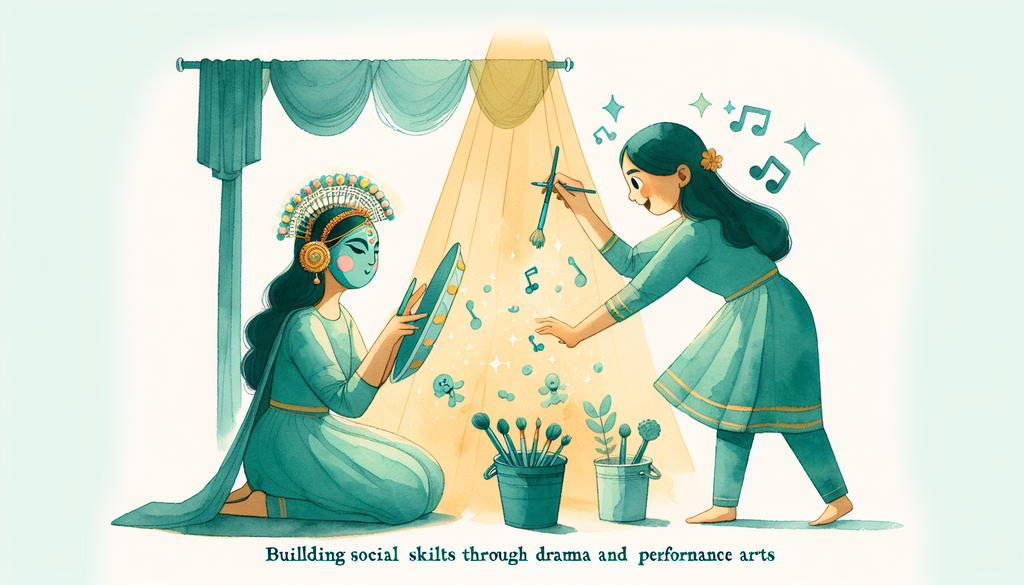Building Social Skills Through Drama and Performance Arts

Children with special needs often face challenges relating to emotional understanding and social interaction, which can hinder their ability to relate with peers and navigate social situations. Similarly, gifted children might also struggle with social confidence, particularly during peer interaction involving competitions and collaborations. This blog post will discuss how drama and performance arts can serve as effective tools for building vital social skills, emotional articulation, and self-confidence in these children.
The Power of Drama and Performance Arts
Drama and performance arts goes beyond a mere on-stage exhibition of theatrical prowess. These mediums have been recognized for their therapeutic benefits, particularly for children with diverse abilities. These art form encourages children to express themselves creatively, fostering emotional understanding, empathy, and social awareness [^1^].
Both individual and ensemble activities under the umbrella of performance arts guide children towards recognizing and managing their emotions, understanding others’ perspectives, and interacting effectively with peers. Cooperation, collaboration, and mutual respect become natural by-products of this process.
Drama Interventions: Understanding Emotions and Promoting Expression
Drama calls for an understanding and expression of emotions. This can be particularly beneficial for children on the autism spectrum who may need additional guidance in these areas. Drama exposes them to a variety of emotions, giving them the chance to explore and understand these feelings in a controlled environment.
By taking on different characters and scenarios, children can expand their emotional repertoire, becoming more comfortable in expressing their feelings and understanding others’. Simple drama exercises, such as mirroring emotions and expressions or role-playing various scenarios, can go a long way in building emotional intelligence.
For more on supportive methods for children on the autism spectrum, you might want to check our previous post on Developing Social Narratives for Children on the Autism Spectrum.
Building Social Skills: Cooperation, Collaboration, and Confidence
Performance arts necessitates collaboration, communication, and cooperation. This makes them a great platform for enhancing these key social skills. Participating in group performances calls for communication and teamwork, encouraging children to listen, express, and cooperate with their peers.
Gifted children who often feel estranged from their peers due to their unique talents may find common ground and mutual interests with peers during these activities, alleviating their feelings of isolation or difference. For tips on supporting your gifted child’s unique strengths, do read our blog post on Giftedness Unwrapped: Identifying Your Child’s Strengths.
In addition, the experience of presenting themselves before an audience can foster valuable self-confidence. Overcoming the initial nervousness and taking center stage in front of peers and adults is a significant achievement. The positive feedback and appreciation after successful performances also provide a major confidence boost.
How Performance Arts Support Emotional Expression
Children with special needs and even gifted children may often experience difficulties in communicating their feelings, needs, and thoughts. This can lead to frustration and pent-up emotions. When words fail, creative expression through drama, music, and dance can provide a vent for these emotions, offering an alternative medium of communication that is often more comfortable for them.
For more insights on how play therapy can aid emotional and psychological development, check our previous post on The Role of Play Therapy in Child Development.
In Conclusion
Drama and performance arts offer promising techniques to help children build social skills, understand emotions, and express themselves creatively. As parents, caregiving, or working in educational settings, it becomes crucial to provide opportunities for children to explore these mediums. This not only caters to their educational growth but also aids holistically in their social and emotional development.